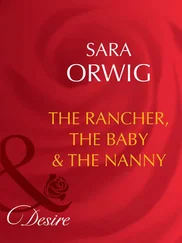Sara Alexi - The Illegal Gardener
Здесь есть возможность читать онлайн «Sara Alexi - The Illegal Gardener» весь текст электронной книги совершенно бесплатно (целиком полную версию без сокращений). В некоторых случаях можно слушать аудио, скачать через торрент в формате fb2 и присутствует краткое содержание. Год выпуска: 2012, Издательство: Oneiro Press, Жанр: Современная проза, на английском языке. Описание произведения, (предисловие) а так же отзывы посетителей доступны на портале библиотеки ЛибКат.
- Название:The Illegal Gardener
- Автор:
- Издательство:Oneiro Press
- Жанр:
- Год:2012
- ISBN:нет данных
- Рейтинг книги:3 / 5. Голосов: 1
-
Избранное:Добавить в избранное
- Отзывы:
-
Ваша оценка:
- 60
- 1
- 2
- 3
- 4
- 5
The Illegal Gardener: краткое содержание, описание и аннотация
Предлагаем к чтению аннотацию, описание, краткое содержание или предисловие (зависит от того, что написал сам автор книги «The Illegal Gardener»). Если вы не нашли необходимую информацию о книге — напишите в комментариях, мы постараемся отыскать её.
The Illegal Gardener — читать онлайн бесплатно полную книгу (весь текст) целиком
Ниже представлен текст книги, разбитый по страницам. Система сохранения места последней прочитанной страницы, позволяет с удобством читать онлайн бесплатно книгу «The Illegal Gardener», без необходимости каждый раз заново искать на чём Вы остановились. Поставьте закладку, и сможете в любой момент перейти на страницу, на которой закончили чтение.
Интервал:
Закладка:
Juliet is slightly shocked, a little weary and feels ever so slightly smug.
“Tell me.”
But he does not talk of Juliet’s life.
“The birth is a time that neither I nor Saabira wish to remember. She cried for so many days and I held her and tried to feed her until she eventually began to curl up with me tighter as if I could take it all away. But I knew I was the bringer of the sorrow. I had brought her the baby and so curling up next to me would not take away the pain. I knew in time we would become closer and closer and then what if another baby came. I would bring her more sorrow.
“I was so proud to have Saabira as my wife and so proud of making her happy I had forgotten everything. I was happy. But I knew if I allowed her to keep curling up to me I would want to show her that love I feel for her and by indulging my love for her I could cause her the greatest pain she has ever known all over again. So I began to make a distance between me and Saabira. It was very hard, harder than carrying jugs of water, harder than racing my brother to load wood, harder than trying to make Saabira happy when we were first married.”
Juliet puts her hand on top of Aaman’s hand that rests on the table.
“I was hurting too and to curl into Saabira would not have taken the pain away, but Saabira is my joy and being together could have made the pain less and the joy more… over time.
“Today I realised that my decision to not be close, in order to protect Saabira, had made us more like brother and sister, which in itself hurt, so agreeing to this journey was a way for me to be away from the pain of the past, the pain of the present and the pain I could cause in the future if I continued to love Saabira. I realised I have run away.”
Knowing his conclusion has come about by hearing the turmoil of her own life, Juliet breaks eye contact and retracts her hand. She turns her head to the side and scowls. Her instincts tell her to get up and leave, but she is struck by the irony in this choice of possible action. An irresistible urge forces her to laugh out loud.
Aaman looks offended.
“No, Aaman, I am not laughing at you. I understand what you said. I am laughing at myself. At my instinct to run away.”
“Running away is not to be laughed at. It is to stop the hurt when we feel we have run out of choices.”
“Yes, I suppose it is. So now you have realised you have run away, what difference will it make?”
“I must stop fearing.”
There is a celebratory gunshot over the hill. The cat’s friend jumps over the wall and wanders into the open house and eats from the bowl of cat food, crunching noisily, staying alert, cautious and protective.
“Yeah, right, easy to say.” Juliet looks at the cat inside but takes no action.
“Easy to do because what I have now is worse than what I fear. Now I have no Saabira, no children, no family, no home, and no future if I stay here. If I take the risks, maybe I can win Saabira back, maybe we can have children, my family will be very happy to see me and, it is small, but we do have a home. It is better.”
Juliet feels uncomfortable by this statement. She has nowhere to go back. No family home, no village, no partner. She ran away from a wide open space of nothingness. She could not return as the welcomed hero. She slumps in her chair.
“I’m hungry again. You?”
“Always,” Aaman says.
“Come on, let’s see what we can find.”
Rummaging in the cupboards, Juliet finds some bits and pieces from the previous week. There is also a slice of spinach pie from the bakery, with a bite taken out of it, a piece of Brie, and an open tin of baked beans in the fridge. She is not a great housekeeper. There are some tubs of spices that have been left through the house sale that are not all at their sell-by date. Juliet finds the tubs that are three years old or more amusing, but Aaman cannot see why throwing these tubs away makes her giggle, nor can she explain it.
Juliet is in charge, but it is quickly apparent that cooking is not one of her skills and so Aaman takes over. He selects what he can from the vegetable rack. Juliet offers to wash and chop. Aaman begins with oil and spices in a large pan, and the house fills with incredible smells. He washes his pots and pans as he cooks, using the same ones again, even though Juliet points out she has more than one of most things.
By the time he is clapping and rotating chapattis, Juliet sits watching with fascination.
“May I ask something?”
“Sure,” Juliet says.
“Do you make money now you have no husband or does he still support you?”
“I make my own, always have ever since the boys started school.”
“How can you when you are so far from your home country?”
He stacks another chapatti.
“On the Internet. I translate documents from Greek to English. In fact, I have just been offered some more work by the British Council in Athens, so I’m going to be really busy soon.”
Aaman is silent.
“What was that you said about your boyhood dream to be a programmer?”
“I think it is every boyhood dream in Pakistan. Everyone thinks it will be easy money with no labour. For me, I think I would really like that it is logical. Also, I like languages.”
“Yes, your English has improved unbelievably. I thought you only had a few words of English when we first met, but you are nearly fluent.”
“I have been listening to you and learning. Saabira has a degree in English and she was very patient with me. I never had the chance of college but I think I am a quick learner.”
Juliet reels at her presumption. The thought of Saabira having a degree doesn’t fit with the image she had created in her head. She seemed to be an unreal person from a developing-world country. Not a person like her, like her boys, with a degree.
“You went to school though?”
“I finished school when my brother died. We had the idea that he was going to help our family make the money so I could go to school to become a programmer. But really I don’t think there was enough money.”
“Oh. Does anybody manage to become a programmer in Pakistan?”
“Yes. They would have to come from a family who could afford education.”
“Ah.”
Aaman brings food to the table. Juliet gets knives and forks, and Aaman puts them to one side. Juliet follows Aaman’s lead and eats using the chapatti. She is amazed at the quality of the food given her bare cupboards. They eat with no talking and, for Juliet, no thinking.
Aaman dwells on what the Western world has to offer, jobs through the computer, enough money to buy houses in countries you are not born in, translating languages to make a living. The world is so big. He so wants, he wants… he wants to stop thinking like Mahmout. Wanting brings him misery.
After the meal he wanders to the pomegranate trees and feels the fruit. Although they have grown they are still nowhere near ripe yet.
Chapter 10
They sit for a long time over their late lunch. The village Easter celebration noises show no signs of abating, the music continues at a loud volume, and the children gain their second wind. The sky begins to darken; there are one or two single fireworks. The still air is pierced with a series of festive gunfire shots. Someone over the hill puts on a firework display, and the whizzing and cracking is heard over the sound of the bouzouki.
Aaman and Juliet move onto the patio. The cat sits on Aaman’s knee. The cat’s friend circles Juliet’s chair. She pshhhes at it, but it flops onto its side and licks its paws to clean over its ears.
Aaman’s face is blank, and Juliet assumes he is now the one who is not thinking. He settles onto the hard-backed chair as if it is made of duck down, his limbs slack, his legs crossed, the upper dangling parallel to the lower indicating his leanness, his lack of size. Juliet’s mind is rolling through the events of the day, the things that have been said, the thoughts she has had.
Читать дальшеИнтервал:
Закладка:
Похожие книги на «The Illegal Gardener»
Представляем Вашему вниманию похожие книги на «The Illegal Gardener» списком для выбора. Мы отобрали схожую по названию и смыслу литературу в надежде предоставить читателям больше вариантов отыскать новые, интересные, ещё непрочитанные произведения.
Обсуждение, отзывы о книге «The Illegal Gardener» и просто собственные мнения читателей. Оставьте ваши комментарии, напишите, что Вы думаете о произведении, его смысле или главных героях. Укажите что конкретно понравилось, а что нет, и почему Вы так считаете.












